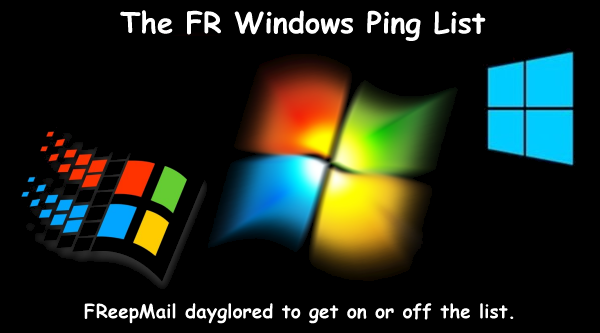
Thanks to raybbr for the ping!!
Posted on 02/17/2016 9:12:01 PM PST by Utilizer
By the end of 2015, the Backblaze datacenter had 56,224 spinning hard drives containing customer data. These hard drives reside in 1,249 Backblaze Storage Pods. By comparison 2015 began with 39,690 drives running in 882 Storage Pods. We added 65 Petabytes of storage in 2015 give or take a Petabyte or two. Not only was 2015 a year of growth, it was also a year of drive upgrades and replacements. Let's start with the current state of the hard drives in our datacenter as of the end of 2015 and then dig into the rest later on.
Hard Drive Statistics for 2015
The table below contains the statistics for the 18 different models of hard drives in our datacenter as of 31 December 2015. These are the hard drives used in our Storage Pods to store customer data. The Failure Rates and Confidence Intervals are cumulative from Q2 2013 through Q4 2015. The Drive Count is the number of drives reporting as operational on 31 December 2015.
(Excerpt) Read more at backblaze.com ...
Ehrm.. perhaps the bit in the article where they post:
“The Drive Count is the number of drives reporting as operational...”
Just a guess...
Ahhh... ‘Then again I do not put THEM to the usage - , not ‘thme’ to the usage - .
Sorry. Typing too fast.
Tech ping
I have a 500gn Samsung eco-green HD that is still going strong after 8 years. The eco-green drives spun at 5400 so I figured would last longer. So I like and trust Samsung engineering. I also like and trust Sandisk and recently installed a 256gb SSD from them that I am very happy with. So now that Sammy 500gb is a secondary drive with the OS etc on the SSD.
The old line of Samsung eco-green 5400rpm hard drives http://www.newegg.com/Product/Product.aspx?Item=N82E16822152173
Single platter!!!! Samsung eco-green 5400rpm hard drive 500GB
http://www.silentpcreview.com/Silent_Samsung_F2_EcoGreen_HD502HI
(long gone discontinues)
My favorites are Micropolis and Connor hehehehe

Thanks to raybbr for the ping!!
HGST, Inc. (formerly Hitachi Global Storage Technologies) is a wholly owned subsidiary of Western Digital that sells hard disk drives, solid-state drives, and external storage products and services.
This is what you do with your HD after it has failed.
Platter racing!
https://www.youtube.com/watch?v=7zSV8DMMs7c
I have dozens of high capacity arrays in service, to the tune of around 900TB, spanning roughly 1500 mechanical disks in just one data center. I can say without reservation that the most reliable consumer level SATA drives available are Seagate Constellation series drives. There are others that are just as reliable, but they are higher end Seagate SAS drives. For low end arrays I use for archiving, the Constellation SATA drives are by FAR the most reliable. In RAID 60 clusters, these drives get hammered constantly, in brutal fashion, and nothing else on the market even comes close to their survival rate. They are a bit more pricey than others, but they end up the lower cost option in the long run... they just take a beating and keep on spinning
You get what you pay for I guess.
Oh, and I forgot to mention.. although that is a rather large sampling of data used in the analysis, you have to remember the failure curve on drives is very dramatic at a given age. For a proper test, average age won’t work. All drives need to be spun up at the beginning at the same time for accurate MTBF data. The average age isn’t quite as accurate as you would think because of the dramatic reliability curve dropoff and a given age (varies by drive a LOT). The failure curve is so far from flat, that average age isn’t all that useful for this purpose.
This.
SSDs provide a HUGE boost in performance, even much more than maxing out your RAM.
Interesting. I have had many drives in the past. Very few have actually failed before they were replaced to increase capacity. I think my luck with drives is at least partially because I am absolutely religious regarding backups.
If I weren’t properly backed up, I’m sure I’d have had more failures, because Murphy, the God of Entropy would be more interested in looking in my direction.
Thanks for your comments on the Seagate Constellation series. It seems one must buy the retail package/version of these hard drives to get the five year warranty direct from Seagate. I would buy one today if I needed one.
http://www.amazon.com/Seagate-Enterprise-Capacity-3-5-Inch-ST6000NM024/dp/B00JJIE8E8/ref=sr_1_14?s=pc&ie=UTF8&qid=1455813386&sr=1-14&keywords=seagate+constellation+es.3
Thanks for the ping.
Thanks!!! And here are some Amazon reviews that have keyword warranty in them
http://www.amazon.com/Seagate-Enterprise-Capacity-3-5-Inch-ST2000NM0033/product-reviews/B00A47FS92/ref=cm_cr_pr_viewopt_kywd?showViewpoints=1&pageNumber=1&filterByKeyword=warranty
*****seems like five year warranty via Seagate which is preferable. Not the seller?
Disclaimer: Opinions posted on Free Republic are those of the individual posters and do not necessarily represent the opinion of Free Republic or its management. All materials posted herein are protected by copyright law and the exemption for fair use of copyrighted works.